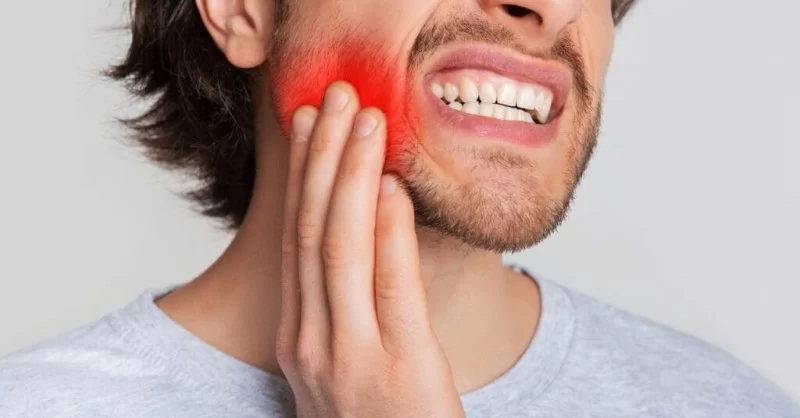
Understanding the Link Between Oral Hygiene and Swollen Lymph Nodes
Swollen lymph nodes often raise concern because they signal that the body is fighting an infection or inflammation. While people may associate swollen glands with colds or throat infections, poor oral hygiene can also play a surprising role. When bacteria build up in the mouth due to neglecting dental care, infections such as gum disease, tooth decay, or abscesses can develop. These infections may cause lymph nodes, especially in the neck and jaw area, to become swollen as the immune system reacts to harmful microbes. For many Americans, the realization that oral health can directly impact the lymphatic system is both eye-opening and motivating to improve dental care routines.
1. How the Lymphatic System Responds to Oral Health Issues
The lymphatic system is the body’s defense network, filtering harmful substances and fighting infections. Lymph nodes are tiny glands that act as filters, capturing bacteria, viruses, and other harmful particles. When oral bacteria enter the bloodstream or spread through tissue, lymph nodes in the neck and under the jaw may enlarge. This reaction is the body’s way of containing the infection before it spreads further. For example, untreated gum disease can lead to chronic inflammation, causing persistent swelling in nearby lymph nodes. Understanding this process helps patients see why something as simple as flossing and brushing daily has effects far beyond just keeping teeth clean.
2. Oral Infections That Commonly Trigger Lymph Node Swelling
Several oral health problems can directly cause swollen lymph nodes. Dental abscesses, which are pockets of pus from bacterial infection, often create sharp, throbbing pain and lead to noticeable swelling in the neck glands. Gingivitis, an early form of gum disease, may seem harmless at first with mild bleeding, but if untreated, it can progress to periodontitis and cause systemic immune responses. Even untreated cavities can harbor bacteria that eventually affect the lymphatic system. These issues are more common than many realize. According to the CDC, nearly half of American adults aged 30 and over show signs of gum disease, highlighting how widespread the risk truly is.
3. Real-Life Case Example: A Delayed Dentist Visit
Consider the story of a college student who ignored a small cavity, thinking it wasn’t a big issue. Over time, the cavity worsened, leading to a severe tooth infection. The student noticed swollen glands under the jaw, along with fever and fatigue. A dentist later confirmed the infection had spread and was causing the lymphatic response. With antibiotics and root canal treatment, the swelling subsided, but the case highlights how ignoring oral health can quickly escalate into a problem involving the body’s immune system. Stories like these emphasize the importance of timely dental visits and the risks of assuming swollen lymph nodes are unrelated to dental health.
4. The Connection Between Gum Disease and Systemic Health
Poor oral hygiene doesn’t just lead to swollen lymph nodes—it also increases risks for systemic diseases. Researchers have linked chronic gum disease to conditions such as heart disease, diabetes, and even respiratory infections. The inflammation that begins in the mouth can spread, with lymph node swelling acting as an early warning sign. For instance, a person with untreated periodontal disease may experience recurring lymph node enlargement as their body continuously battles oral bacteria. This underscores the importance of seeing oral health as an essential part of overall health and not just a cosmetic issue.
5. Effective Ways to Prevent Oral-Related Lymph Node Swelling
The good news is that swollen lymph nodes caused by poor oral hygiene are preventable. Establishing strong daily habits such as brushing twice a day with fluoride toothpaste, flossing regularly, and rinsing with an antibacterial mouthwash helps reduce bacterial buildup. Scheduling dental cleanings every six months is equally crucial, as dentists can detect early signs of gum disease or infection before they progress. If swelling does occur, seeking prompt dental care is the best course of action. In severe cases, antibiotics may be necessary, but preventing infections in the first place is always the safer and healthier route. At Family Dentistry Online, patients can find professional guidance and services tailored to maintaining long-term oral health.
6. When to See a Dentist or Doctor
While swollen lymph nodes are often temporary, lasting longer than two weeks or accompanied by pain, fever, or difficulty swallowing should raise concern. These could be signs of a more serious underlying condition requiring immediate medical attention. If the swelling is localized near the jaw and paired with tooth or gum pain, dental infections are a likely cause. However, because lymph node swelling can also signal other illnesses, consulting both a dentist and a healthcare provider ensures a proper diagnosis and treatment plan. Acting early not only resolves discomfort but also prevents oral infections from leading to more severe health complications.
7. Why Oral Hygiene Habits Matter More Than Ever
In a culture where appearance and confidence play a major role, people often focus on white teeth and fresh breath as the goals of oral care. Yet the reality is that oral hygiene goes much deeper. By caring for the mouth, individuals protect their immune system and reduce the likelihood of swollen lymph nodes caused by hidden infections. From children learning proper brushing techniques to seniors managing gum health, every stage of life benefits from consistent dental care. The takeaway is clear: good oral hygiene is not optional—it is a vital step in keeping the body’s defenses strong and preventing uncomfortable or alarming symptoms like swollen lymph nodes.







 Arise Dental - Your Local Peoria Dentist4.0 (205 review)
Arise Dental - Your Local Peoria Dentist4.0 (205 review) Light Dental Studios of University Place4.0 (279 review)
Light Dental Studios of University Place4.0 (279 review) Dentists of South Pasadena4.0 (124 review)
Dentists of South Pasadena4.0 (124 review) Aurora Dental Care4.0 (153 review)
Aurora Dental Care4.0 (153 review) ClearChoice Dental Implant Center4.0 (383 review)
ClearChoice Dental Implant Center4.0 (383 review) Kansas City Dentures and Implants5.0 (15 review)
Kansas City Dentures and Implants5.0 (15 review) The Importance of Oral Health Education During Pregnancy for a Healthy Pregnancy
The Importance of Oral Health Education During Pregnancy for a Healthy Pregnancy Best Tips for Brushing Your Teeth Properly for Healthy Gums: Essential Techniques for Oral Health
Best Tips for Brushing Your Teeth Properly for Healthy Gums: Essential Techniques for Oral Health Why Skipping Dental Checkups Can Lead to Bigger Oral Health Problems
Why Skipping Dental Checkups Can Lead to Bigger Oral Health Problems Advantages of Porcelain Dental Restorations
Advantages of Porcelain Dental Restorations How Can Diabetes Cause Tooth and Gum Problems? Preventing and Managing Oral Health Issues
How Can Diabetes Cause Tooth and Gum Problems? Preventing and Managing Oral Health Issues Healthy Habits for Promoting Good Oral Health and Hygiene: Tips for a Healthy Smile
Healthy Habits for Promoting Good Oral Health and Hygiene: Tips for a Healthy Smile